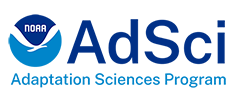Development of robust management strategies for Northeast groundfish fisheries in a changing climate






Advancing scientific understanding of climate, improving society’s ability to plan and respond






Advancing scientific understanding of climate, improving society’s ability to plan and respond

